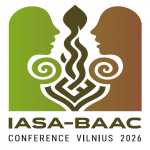1. Introduction
From the earliest days of sound recording, historical content and significance have been major criteria for the selection and preservation of audio documents by archivists. Speeches and lectures, reports and descriptions of important events, personal narrations and reminiscences, interviews and discussions have long been collected as historically valuable records by a large number and variety of archives. Until quite recently, however, the relationship between sound recording and historical documentation was haphazard. Most collected material had been recorded - often by broadcasting organisations - for immediate practical ends. Any subsequent preservation by archivists aware of its permanent historical value was generally incidental to the reasons for which the recordings were originally made. In the field of historical sound documentation as with many other classes of records - archival collections, therefore, traditionally consisted of recordings that were created without objective regard to historical considerations and which survived, very often, only by accident and good fortune.
During the past thirty years, however, oral history has developed as a practice in which historical research and archival collecting have combined to eliminate to some extent the previously arbitrary manner by which the past was documented in sound. This development was made possible by the availability of relatively cheap portable tape recorders from the 1950s onwards. These provided the tool by which historians could conveniently produce their own research sources, and archives their own collections, by selecting specific people, subjects or events for documentation by recording. It is the systematic creation of historical sound recordings to form oral history archives that this chapter is concerned with.
What is oral history? It may be defined as a method for obtaining historical reminiscences by interviewing people who were participants in or witnesses of the matters they describe and recording their recollections verbatim on magnetic tape. This purely practical definition should not obscure the fact that oral history, which has been considerably developed and refined over the years, can be a sophisticated research tool. It is, nonetheless, essentially a term which has come to describe a method of collecting historical information and it produces a particular form of data that has become yet one more class of document available to the archivist.
It is widely held that the practice of oral history began in the USA where, in 1948 at Columbia University, Professor Allan Nevins was instrumental in setting up a programme 'to obtain from the lips of living Americans who have led significant lives, a fuller record of their participation ... in political, economic and cultural life'1. Although a professional historian, Nevins' interest was primarily archival in the sense that, by recording, he wanted to capture and preserve information which otherwise would be irrevocably lost. In this he was also preoccupied with further documenting the lives of regional, national and international leaders, an interest that was to dominate the development and use of oral history for the next twenty years. Only in the past decade has the balance been shifted, mainly by social historians interested in collecting information about the history of urban and rural working class groups and communities. As a result, oral history now also 'moves among the generality of the population, noting and recording prejudices and reactions ... to garner human experience in all its richness'2
In addition to these trends, there has been "an explosion of interest in this field of sound documentation which is illustrated by the extraordinarily wide range of studies in which oral history methods have been used. For political and economic history, social and cultural life, business and technology, science and the arts and in the affairs of societies and individuals at many levels and types of interest, oral history recording has been initiated. For practitioners in all fields of oral history the main objective is to create - in Nevins' words - 'a fuller record'. To some this has meant supplementing existing records; for others it has involved recording the hitherto unrecorded. In countries or within groups that do not have a tradition of formal record keeping or written history, oral history offers unique opportunities to preserve for the future a more complete record of the past.
It is not the purpose of this chapter to give detailed information or advice about the methodology of oral history. There is a large existing body of literature dealing with research techniques, interviewing methods, recording practice, transcribing procedures and giving analyses and assessments of oral evidence. Some of the major publications dealing with these aspects are listed in the bibliography to this chapter.
- Nevins, A. The Gateway to History; New York: D. Appleton Century; 1938
- Marshal, J. 'The sense of place, past society and the oral historian' in Oral History, Vol.3, No.1; 1975


